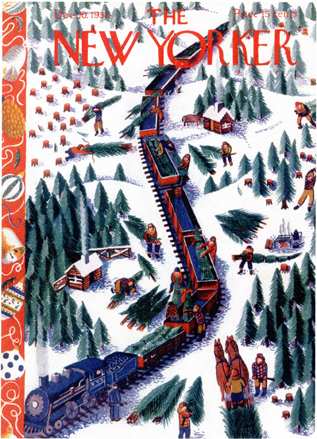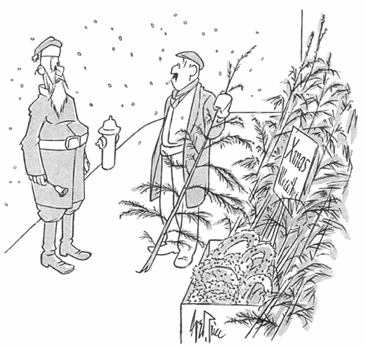
MAX HILL

The day of Pearl Harbor, I was given a number, No. 867, and put away in a five-and-a-half-by-nine-foot cell in Sugamo Prison, which the Japanese blandly describe as the Tokio Kochisho, or Tokio Retaining Place. In May, at which time I was still in Sugamo, I was tried and found guilty of sending to the Associated Press, in my capacity as correspondent, stories which, according to the very flattering judge, were “detrimental to Japan’s diplomacy.” I was sentenced to serve eighteen months, but the sentence was suspended when the United States government insisted that all correspondents be included in the first exchange of nationals, and actually I got out of Sugamo in June, when I was removed to the comparative freedom of an internment camp and then shipped off to New York on the Gripsholm, so my total stay there was six months. Six months in a Tokio retaining place can be tedious.
My cell had cement walls and one tiny barred window. The furnishings were a bed, a washbowl, a toilet, a broom, and two tatami, or rice-straw mats. I wasn’t permitted to sit or lie on the bed until bedtime, and if I wanted to sit down, I had to sit on the floor or on the toilet. Mostly, I chose the latter. Each day I was awakened at five o’clock. Then I had to sweep my cell and make my bed. At six-thirty a guard brought in breakfast, at eleven o’clock lunch, and at three o’clock supper, all three meals invariably consisting of a bowl of warm water, a bowl of seaweed or turnip-top soup, and a cup of cold boiled rice and barley, mixed. At four o’clock the door of the cell was double-locked for the night, and a little later a bell rang, the signal for prisoners to go to bed. The electric light in the cell was turned on and left on throughout the night, shining down on my face. The temperature in the cell was almost always below freezing; I was sure of that because the water in the basin placed under the defective drain of my washbowl almost always had a coating of ice. It was only in bed that I had any chance of thawing out, if not precisely of getting warm. I spent a good part of my day, therefore, looking forward to four o’clock.
I had been in Sugamo just a few days when I made the unJapanese mistake of trying to keep my feet warm. The Japanese always slip off their shoes before stepping on their tatami, and they expect others to do the same. I was more interested in not freezing my feet than in observing this picturesque custom, and often, in crossing my cell, I walked over my tatami without removing my shoes. Once, as I was committing this desecration, a goldtoothed guard, padding through the corridor on an inspection tour, caught me. “Damé,” he growled as he entered the cell. That means “bad.” Obviously pleased with the result of his expedition down the drafty corridor, he ordered me to take off my shoes, grabbed them, and departed. I didn’t get them back until four months later. In the meantime I had to walk around in my socks. The only advantage of this was that it gave me one more thing to do to occupy my time. In an effort to warm my feet, I could spend many hours sitting on the toilet wiggling my toes.

Otherwise, I had two principal ways of killing time. One was to count the branches on a pine tree that I could see from my window. My count varied between a hundred and fifty and two hundred and was never the same twice in succession. To see the tree at all, however, I had first to kneel on the toilet in an especially awkward position, then push open one side of a frosted-glass panel at the bottom of the window, twist my neck, and peer out with my head way on one side. I was able to frame the entire tree in the small triangle formed by the opening in the window. My other principal occupation was trying to recite the names of the forty-eight states. I kept track of my progress by means of nine counters I had made by breaking up a straw pulled from my broom. For three solid months my total was always forty-seven states, no matter what part of the continent I started with. In my mind I could see the Atlantic coast plainly, so I usually started with the Atlantic states, then moved west by tiers of states, tracing an imaginary map on the wall with my finger. But sometimes I would try a name-by-name cruise through the Great Lakes, or take off from the Pacific Northwest. Whichever gambit I used, the total remained forty-seven. The missing state became an obsession. It disturbed me more than the gold-toothed guard, who always smelled of tobacco and made me long for a cigarette—even a Japanese cigarette, which tastes like the stale hay I smoked as a boy. At the end of the three months the forty-eighth state emerged from the back of my head. It was Mississippi. I felt that remembering it called for some celebration, and drank a toast to Mississippi in cold water.
The acoustics in Sugamo were uncanny. I couldn’t even whisper to myself without bringing the guard all the way down from his station at the far end of the corridor to investigate. My counting the branches on the pine tree or naming the states never did get much of a rise out of him, but on one occasion, early in my stay, I did something that really seemed to worry him. It was when I first happened to think of the fact that Christmas was coming. It was the fifteenth of December. Why, I thought, there are only seven more shopping days till Christmas, and I started to laugh. The guard came trotting down to my cell and walked in to see what was up. He found me still laughing. It was no use trying to explain to him what was so funny, and I didn’t say anything. He stood for a while, looking at me with a puzzled expression, then glumly walked away.

“Any discount to the trade?”
My seventeenth day in prison was the day before Christmas. It was particularly cold and particularly gloomy. My household chores were finished early and I couldn’t even amuse myself by counting the branches of the tree, for it had snowed the night before and the fluffy flakes obscured their outlines. I spent most of the day sitting on the toilet, wiggling my toes. As usual, I was in bed shortly after four P.M., long before it was technically Christmas Eve. After I had been asleep for about two hours, I heard the clanking of a key in my lock. I sat up. The door creaked open and the gold-toothed guard walked in. He was grinning and carrying a cardboard box about the size of a hatbox. He took the lid off and peeked inside. Coming over to my bed, he bowed low, said, “Dozo” (“Please”), and shoved the box into my hands. Inside was an oddly shaped object wrapped in tissue paper. Mighty nice of them, I thought, and I said, “Dom-arigato” (“Thank you very much”). I pulled off the tissue paper. Underneath was an artificial Christmas tree about a foot high and set in a little white tub; its stiff green branches were flecked with artificial snow, which glittered in the electric light. Scattered through the package were bits of tinsel and a number of ornaments—a small silver heart, a miniature Santa Claus, a star.
“Ano-ne” (“By the way”), the guard said hesitantly. Then, handing me a small slip of white paper, he explained that the tree had been sent to me by the prison officials and that he needed my chop, or mark, on the slip to make it proper for them to take the money for the tree from the cash of mine they had in safekeeping. The tree would cost me, I learned, two yen, or about fifty cents. I put my chop on the slip. I felt sure that the guard had no idea what Christmas was. Where, I nevertheless asked him, did the officials get the tree? It was one of hundreds, he answered, that had been made long ago by prisoners to sell in the United States. I assumed that the war had put an end to that business, and evidently I was the best prospect they had left, maybe the only one.
The guard left me, slamming the door. I got out of bed and knelt down on one of the mats. I set the tree in a corner of the cell and took the ornaments and tinsel out of the box. “Merry Christmas,” I said to myself, and began to hang the ornaments and drape the tinsel on the tree.
1942